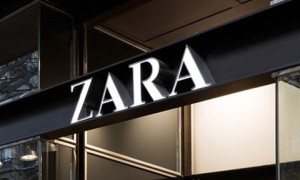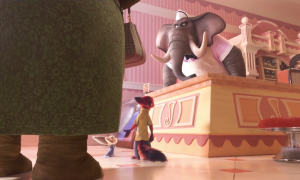In the Western world, the traditional shopping season usually lasts from Thanksgiving in November to Christmas in December. In recent years, however, Chinese consumers have added another month of shopping with the celebration of Spring Festival, which has become as big a deal as Christmas to US shopping malls.
At South Coast Plaza in Costa Mesa, California, the highest-grossing mall in the United States with $1.7 billion in sales last year, peak season begins the day after Thanksgiving and ends not at Christmas, but at the close of Chinese New Year celebrations.
This week at the sprawling shopping center, the scarlet red dresses that adorned mannequins at the windows of Carolina Herrera and Balenciaga were mainly intended to attract Chinese customers. Dolce & Gabbana is selling a monkey-print T-shirt, exclusive to the mall, in honor of the Year of the Monkey.
At this time of the year, many US malls, particularly those in West Coast cities with large Asian-American or Asian expatriate communities, feature Chinese Lunar New Year celebrations or decor. But South Coast Plaza is looking beyond its local clientele to a rapidly growing base of wealthy Chinese tourists spending serious retail money abroad.
The center has courted China since the early 2000s, long before the country’s boom in foreign tourism. It was the first shopping center in the US to accept China UnionPay bank cards. This was a prescient investment, since Chinese shoppers now make up 30 percent of the global luxury goods market, with about half of the spending done abroad.
The Chinese government estimates that 2.91 billion trips of all kinds will be taken over the Chinese Lunar New Year’s 40-day travel season, in what is thought to be the largest yearly movement of people in the world.
This year, overseas visits conducted by Chinese tourists are expected to reach a high of 6 million over the weeklong holiday season, which officially started on Sunday, according to Ctrip, a major online travel site in the world’s second-largest economy. That represents a 15 percent increase over the total of overseas visits conducted by Chinese tourists over the Lunar New Year season last year.
According to the China National Tourism Administration, Chinese tourists undertook more than 120 million visits overseas last year, many of which helped support growth in the countries of destination.
In 2014, Chinese tourists spent $165 billion overseas, the World Tourism Organization reported recently.
Besides the sales at US malls, Chinese tourists also helped to provide a significant boost to Japan’s economy. The Japan Tourism Agency confirmed in a report that Chinese tourists made up 40 percent of total consumption by foreigners last year, spending an average of $2,393.
In Kobe, celebration of the Chinese Spring Festival and visits by Chinese consumers this year have added vigor and vitality to Nanjing town, the second-largest Chinatown in Japan, as well as providing economic benefits to the region.







